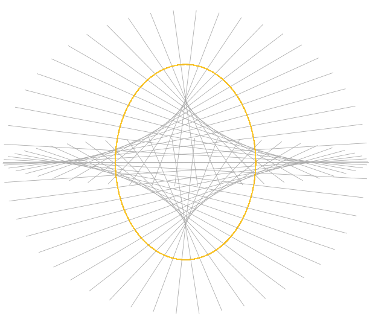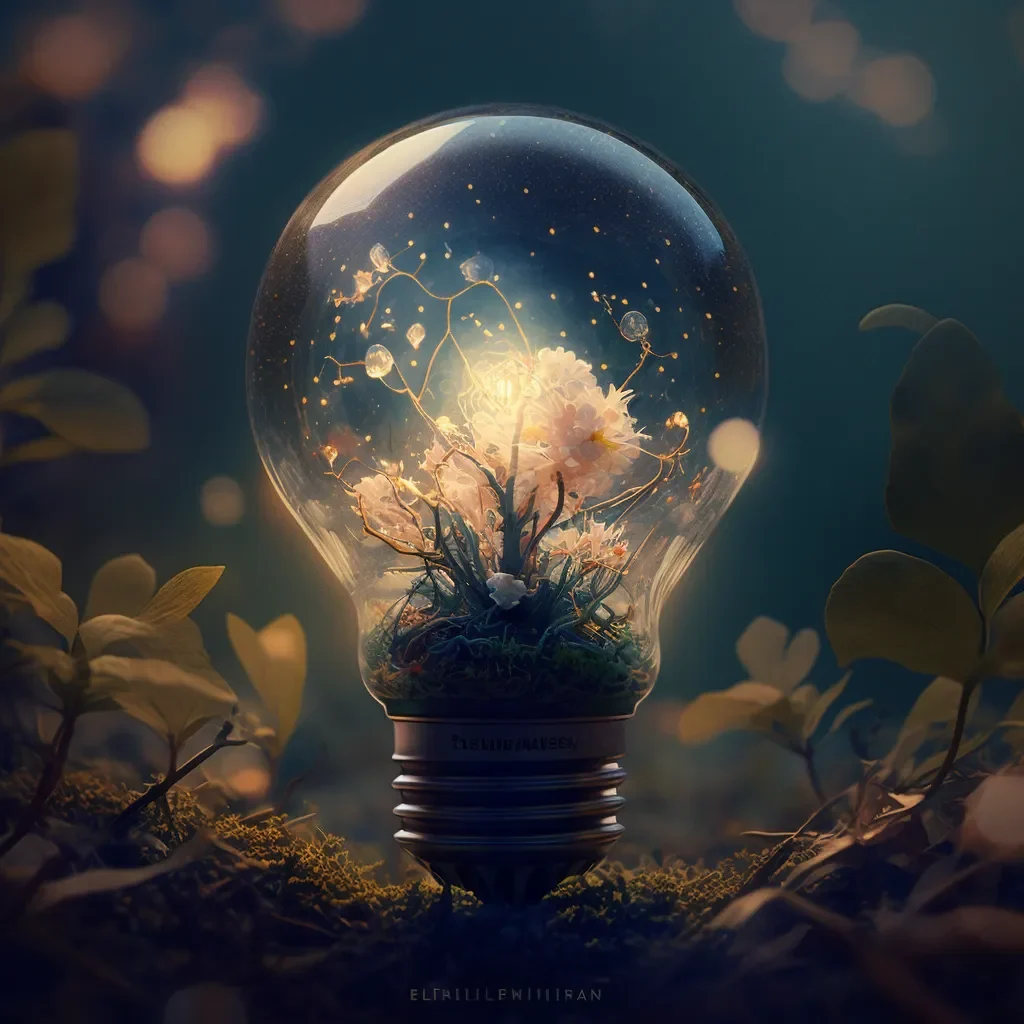Francisca Niklitschek
Contributing Authors
Dmitrij Achelrod PhD
Francisca Niklitschek
Ego Death with Psychedelics: The Good, the Bad and the Ugly
What if everything you believe about who you are, your name, your roles, your story, suddenly faded into silence? Imagine a moment so profound that the boundaries separating you from the world vanish, and all that remains is an overwhelming sense of unity, peace, and truth. This is the phenomenon known as ego death, a radical shift in consciousness where the sense of “I” dissolves, revealing a deeper connection to existence itself.
Often triggered by intense spiritual practices, psychedelic journeys, or mystical experiences, ego death isn’t just a psychological concept where you can not remember anything about yourself, but it’s a transformative event that can forever shift how we see ourselves and the world. While it can feel disorienting or even frightening as the self falls away, ego death is also a gateway to liberation, awakening, and profound insight.
In this guide, we’ll explore what ego death really means, what causes it, and how it can lead to lasting personal transformation.
What is Ego Death? Understanding the Basics
Ego death or “ego dissolution” describes an experience where your sense of self completely fades, a temporary state called autobiographical amnesia [1]. In this state, you’re still awake and able to interact with the world around you, but you can’t remember who you are, not your name or your story.
Ego death is often characterized by a profound sense of interconnectedness and unity with the universe. As the boundaries of the self dissolve, one may experience a merging with your surroundings, a feeling of oneness that transcends the ordinary sense of individuality. While this can be liberating and enlightening, it may also be accompanied by moments of fear or disorientation as the familiar constructs of the ego fall away. Being prepared for these sensations can help you embrace the experience with an open heart and mind.
First, what is the “ego”?
The ego refers to the part of your identity that you recognize as “I” or “me.” It’s shaped by your self-image and level of self-worth. Often unconsciously, your ego plays a significant role in shaping how you interpret life, how you experience situations, and how you relate to those around you [2].
In neuroscience, the ego is linked to the default mode network (DMN), which governs self-referential thinking, it’s a group of interconnected brain regions associated with self-referential thought and the maintenance of the ego [3] [4] [5].
Imagine your ego as a costume you’ve been wearing on a stage. It’s designed over years with medals, colors, and symbols stitched into it. This costume represents all the roles you think you play: student, parent, artist, achiever, victim, hero, etc.
What is Ego Death?
Now, ego death is like stepping off the stage and taking off that costume in front of a mirror. At first, it feels like loss or nakedness, who are you without it? But then you see: you were never the costume, nor the actor – it was all a play. You’re the space in which the play happened. You’re the light on the stage, the breath behind every line.
In that moment, you stop being a character in the story and realize you are the story itself—inseparable from the world, flowing with it rather than fighting to define yourself within it. From that nakedness, a new kind of authenticity is born – not a role, but a being. Life is no longer about playing a part, but about presence. You begin again, not with a script, but with deep awareness.

Ego death, at its core, is the dissolution of the self or the “ego” , that part of our psyche that gives us a sense of individual identity [6]. This concept, often associated with mystical experiences and spiritual awakening, challenges the very essence of how we perceive ourselves and our place in the world. In everyday life, the ego acts as a filter through which we interpret our experiences, shaping our thoughts, emotions, and actions. But in the state of ego death, this filter is temporarily lifted, allowing for a more expansive view of reality.
Imagine a moment where the boundaries between you and everything else blur, where the distinction between “self” and “other” fades away. This can be a moment of profound insight, where one feels a deep connection with the universe and a sense of unity with all things. It can be both awe-inspiring and unsettling, as it forces us to confront aspects of ourselves that we typically keep hidden. The experience of ego death can lead to a reevaluation of personal values, beliefs, and goals, often resulting in long-lasting changes in perspective and behavior.
Understanding Ego Death: A Brief Context
The concept of ego death has deep roots across multiple disciplines: psychology, spirituality, and philosophy, each offering unique interpretations. In Jungian psychology, it’s known as psychic death, a fundamental transformation of the psyche that involves the dissolution of ego-based identity in favor of a more authentic, integrated self. In spiritual traditions, ego death is often seen as a prerequisite for enlightenment. Sufism refers to this as fana, the annihilation of the self into divine unity. In Jewish Kabbalah, it’s called “the kiss of death,” symbolizing mystical union, while Zen Buddhism points to anatta (non-self), the realization that the ego is an illusion and the root of suffering.
While these interpretations help frame the experience, this blog focuses specifically on ego death as induced by psychedelic substances. Psychedelics provide a unique, neurochemically-facilitated gateway to ego dissolution, and their role in catalyzing such transformative states has become a powerful subject of scientific research and modern spiritual exploration [7].
That said, psychedelics aren’t the only path to ego dissolution. Deep spiritual practices such as intensive meditation, prayer, and lifestyles of self-denial can likewise dissolve the self’s boundaries, offering non-chemical gateways to unity and insight. And life-altering events like near-death experiences, childbirth, or existential crises can also catalyze a sudden reevaluation of identity, often accompanied by the same sense of oneness and transcendence.
Ego death with psychedelics
The relationship between psychedelics and ego death is as profound as it is intricate. Psychedelics like psilocybin mushrooms or truffles, LSD or ayahuasca have long been used in various cultures to facilitate spiritual and transformative experiences. These substances are known to alter brain activity, particularly in areas associated with the sense of self [8] [4]. This alteration can lead to the temporary dismantling of the ego, allowing individuals to experience a state of consciousness that is less constrained by personal identity and the usual filters of perception [9].
Psychedelics induce ego death by altering neurotransmitter systems, particularly serotonin, which leads to changes in brain activity. Specifically, they reduce activity in the DMN, a network of brain regions involved in self-referential thinking, memory, and identity [3]-[5],[7]-[9]. This disruption can cause a temporary “dissolution” of the ego, as the brain’s usual self-referential processes are suspended.

By quieting the DMN, psychedelics allow for a more interconnected and less ego-centric mode of consciousness. This state can lead to significant personal insights and a re-evaluation of one’s life and priorities. To learn more about how psychedelics affect the brain, explore our article Your Brain on Psychedelics: Intro to the Neuroscience of Psilocybin.
A 2015 study from Imperial College found that ego dissolution under the effects of psilocybin was associated with “decreased functional connectivity between the medial temporal lobe and high-level cortical regions,” suggesting that the communication of biographical information from the hippocampus to the executive areas of the forebrain is severely diminished during ego death [10].
Additionally, psychedelics increase communication between different brain regions that typically do not interact, leading to new perceptual experiences and a sense of unity. Research has shown that novel neural connections are formed under the effects of psychedelics between regions of the brain that normally don’t communicate with one another, and these connections can persist over time [11]. The dose-dependent nature of this effect means higher doses are more likely to induce ego death, as they more significantly disrupt the DMN and other neural networks responsible for maintaining a sense of self.
A 2020 study linked glutamate levels to the experience, with higher levels in the medial prefrontal cortex correlating with negative experiences and lower levels in the hippocampus with positive ones, as noted in the same source [12]. This suggests that brain chemistry plays a role in how the experience is perceived.
What to Expect During an Ego Death Experience with psychedelics
Common Sensations and Emotions
The experience of ego dissolution is deeply personal and can vary significantly from one individual to another. However, certain common themes and sensations are often reported by those who have ventured into this profound state of consciousness. Understanding what to expect can help you navigate the journey with greater ease and insight. When undergoing ego dissolution, you may notice the following experiences [13]:
- Fading or disappearance of the boundary between yourself and the world around you.
- Profound feeling of unity with the universe
- A sense of deep connection with all of humanity
- A spiritual experience of becoming one with a higher power or divine force
One of the most common sensations is a profound sense of unity with the environment and the universe. This feeling of interconnectedness can manifest as an overwhelming sense of love and compassion, not only for oneself but also for all beings. It’s as if the barriers separating you from the world dissolve, revealing the intricate tapestry of life in which you are an integral part.

On the emotional spectrum, experiences can vary dramatically. Some individuals encounter feelings of joy, peace, and liberation, as the usual constraints of the ego are lifted. However, it is also common to experience moments of fear, confusion, or vulnerability, especially as the familiar sense of self begins to fade. These challenging emotions are not to be feared; rather, they are opportunities for growth and deeper understanding. Learning to sit with discomfort and embrace the unknown is part of the journey, allowing for a more profound transformation.
For those intrigued by the profound sense of unity and interconnectedness experienced during ego death, our article on Psychedelics and Reality explores how these experiences challenge conventional views of self and reality.
Dark Night of the Soul
The process of ego death or ego dissolution with psychedelics can be terrifying, as it involves losing one’s sense of self, which can feel like dying. This fear can lead to resistance, exacerbating negative emotions such as anxiety or panic.
Ego death often involves a phase known as the “dark night of the soul”, a period of intense spiritual crisis where you can experience a complete loss of identity and question everything about their existence [14]. This phase is described as a necessary but painful part of awakening, where the ego’s defenses are stripped away, leaving us in a state of vulnerability and confusion.
Though intensely difficult, this period is often a necessary stage for profound growth. It’s the dismantling of the false self so something more authentic can emerge—often described as the soul, the higher self, or the true nature of reality. For those navigating the intense fear and vulnerability of the dark night of the soul, our article on The Psychedelic Bad Trip Paradox explores how challenging psychedelic experiences can mirror this spiritual crisis.
Navigating Challenges: Letting Go of Control
Our egos are accustomed to maintaining a sense of order and predictability in our lives, and the prospect of losing that control can be terrifying. However, the process of letting go is essential for fully embracing the transformative potential of ego death [15] [16]. Trusting the process and accepting the temporary dissolution of the self can lead to profound insights and a deeper connection with the core of one’s being.
There are several strategies to facilitate letting go of control during an ego death experience with psychedelics:
- Preparation and Understanding: Engaging in practices like meditation, breathwork, or studying spiritual texts to become familiar with the sensation of letting go of the sense of self. This can reduce fear and resistance. Also, setting clear intentions before the experience and understanding that ego death is a temporary state that can lead to profound insights.
- Surrender and Acceptance: Surrendering means allowing the experience to unfold without trying to control thoughts, emotions, or the environment. Accept whatever arises, even if it feels intense or unfamiliar. Trust that the experience, though unpredictable, is part of personal growth.
- Mindfulness and Presence: Stay present and observe the experience without judgment, focusing on the moment rather than trying to control it. This can help detach from the fear of losing control. Practices like mindfulness meditation can prepare you for this state, as they train you to observe thoughts and feelings without attachment.
- Creating a Safe Environment: Ensure you are in a comfortable, safe setting, especially if using psychedelics. Being with trusted individuals can provide support and reduce anxiety, making it easier to let go.
A supportive setting can help mitigate the ego’s defensive reactions, such as fear or panic. If you are seeking a professional, guided experience to navigate this transformative journey The EvoSHIFT retreat at Evolute Institute offers a carefully crafted environment with expert facilitators and a supportive community. Our psilocybin retreats provide a safe space to embrace the challenges of ego death and unlock profound personal growth.
- Embracing the Unknown: Ego death often involves entering the unknown, where familiar boundaries dissolve. Accepting this uncertainty is key to letting go. Trust that the experience, though unpredictable, is part of your personal growth and can lead to a deeper sense of interconnectedness.
In the following table you can find a summary of strategies for letting go of control during ego death:
Strategy | Description |
Preparation | Engage in meditation, breathwork, or study spiritual texts to familiarize with letting go. |
Surrender and Acceptance | Allow the experience to unfold without resistance, trusting the process. |
Mindfulness and Presence | Stay present, observe without judgment, using mindfulness to detach from control. |
Safe Environment | Ensure a comfortable, supportive setting, especially with psychedelics. |
Avoid Panic and Resistance | Choose not to panic, recognizing ego’s defensive reactions as temporary. |
Embrace the Unknown | Accept uncertainty, trusting the experience as part of growth. |
Integration and Reflection | Reflect post-experience to process and apply insights, aiding future letting go. |
To keep in mind, the practice of mindful surrender can be an invaluable skill not only in ego death experiences but in everyday life, fostering resilience and openness to change. For further exploration on how to cultivate this mindset, our article on Increasing Psychological Flexibility delves deeper into this skill, which helps us align our actions with our core values, embrace the present moment, and navigate life’s challenges with greater openness
Integrating Ego Death: Life After the Experience
As you emerge from the depths of an ego death experience, reflection becomes a pivotal tool in harnessing the insights gained. This contemplative process allows you to revisit the revelations encountered during your journey, examining them with clarity and intention. It’s a time to ask yourself meaningful questions: What did I learn about myself? How did this experience challenge my previous beliefs or perceptions? By engaging in thoughtful reflection, you cultivate a deeper understanding of the transformative insights that surfaced during the journey.

Reflection can take many forms, from journaling and creative expression to discussions with trusted friends or mentors. These activities provide a safe space to explore the nuances of your experience and to articulate the changes in perspective that have occurred. Through this process, the abstract and often ineffable insights of ego death can be translated into practical wisdom, guiding your actions and decisions in everyday life.
Translating the profound insights from an ego death experience into tangible changes in daily life is where the true work of integration begins. This process involves consciously applying the lessons learned to your interactions, decisions, and overall approach to life. It requires a commitment to embodying the new perspectives gained, transforming them from fleeting realizations into lasting change. This might mean adopting more mindful communication, setting healthier boundaries, or embracing a more compassionate and open-hearted approach to relationships.
After this experience, maybe you would need to set new intentions or goals that reflect your evolved understanding of self and the world. It may also mean letting go of old habits or beliefs that no longer serve your highest good. The truth is that, by making deliberate choices that align with the wisdom gained, you pave the way for a more authentic and fulfilling life. If you are interested in learning more about integration, you can read our article Psychedelic Integration: What is it and how does it work?.
Ego Death: The Good, the Bad, and the Ugly – A Final Reflection
As we’ve explored, ego death with psychedelics is not a one-dimensional experience: it is as vast, varied, and unpredictable as the psyche itself. For some, it is a divine reunion with the universe. For others, a terrifying freefall into nothingness. And for most, it’s somewhere in between… a mix of beauty, fear, and raw truth.
The Good
In its most elevated form, ego death offers liberation from limiting beliefs and a direct experience of unity, compassion, and transcendence. It can feel like awakening from a dream, or coming home to a deeper, truer version of oneself. For many it is one of the most meaningful events of our lives.
The Bad
But transformation rarely comes without a price. The loss of the ego, even temporarily, can be deeply unsettling. Panic, confusion, and fear often arise when we confront the unfamiliar terrain beyond the self. Without preparation or support, this can lead to lasting emotional ripples.
The Ugly: “dark night of the soul”
The dissolution of the ego is not always light and liberation. It also opens the door to fragmentation, confusion, or spiritual crisis, especially when the experience isn’t properly integrated. This is the shadow side of awakening: the dark night of the soul, where everything once believed to be true dissolves, leaving behind a void.
Uncomfortable, raw, and often overlooked, this stage demands deep care, patience, and support. But it’s also a sacred passage, because in the breakdown lies the potential for true rebirth. Ultimately, ego death isn’t about losing who you are. It’s about shedding who you’re not. What’s left isn’t emptiness, but presence.
Ego death is not the end. It’s the beginning of seeing clearly.

If you’re inspired to explore the transformative depths of a psychedelic experience, join our EvoSHIFT retreat at Evolute Institute, a legal psilocybin retreat in the Netherlands crafted with exceptional professionalism and care. Guided by expert facilitators, our magic truffle retreats offer a profound journey into self-discovery, helping you navigate the challenges of this experience with intention and support.
Unsure whether a psychedelic retreat or clinical psychedelic therapy is right for you? Our guide on Psychedelic Therapy vs Psychedelic Retreats clarifies the differences: retreats for immersive transformation, therapy for mental health-focused integration, and helps you find a program that resonates with your personal goals.
Bibliography
[1] A. Staniloiu, H. J. Markowitsch, and A. Kordon, ‘Psychological causes of autobiographical amnesia: A study of 28 cases’, Neuropsychologia, vol. 110, pp. 134–147, Feb. 2018, doi: 10.1016/j.neuropsychologia.2017.10.017.
[2] J. A. Bailey, ‘Self-image, self-concept, and self-identity revisited.’, J. Natl. Med. Assoc., vol. 95, no. 5, pp. 383–386, May 2003. https://pmc.ncbi.nlm.nih.gov/articles/PMC2594523/
[3] C. G. Davey, J. Pujol, and B. J. Harrison, ‘Mapping the self in the brain’s default mode network’, NeuroImage, vol. 132, pp. 390–397, May 2016, doi: 10.1016/j.neuroimage.2016.02.022.
[4] R. L. Carhart-Harris and K. J. Friston, ‘The default-mode, ego-functions and free-energy: a neurobiological account of Freudian ideas’, Brain, vol. 133, no. 4, pp. 1265–1283, Apr. 2010, doi: 10.1093/brain/awq010.
[5] V. Menon, ‘20 years of the default mode network: A review and synthesis’, Neuron, vol. 111, no. 16, pp. 2469–2487, Aug. 2023, doi: 10.1016/j.neuron.2023.04.023.
[6] ‘Ego death’, Wikipedia. May 24, 2025. Accessed: May 27, 2025. [Online]. Available: https://en.wikipedia.org/w/index.php?title=Ego_death&oldid=1292039930
[7] S. J. Lynn, C. W. McDonald, F. G. Sleight, and R. E. Mattson, ‘Cross-validation of the ego dissolution scale: implications for studying psychedelics’, Front. Neurosci., vol. 17, Dec. 2023, doi: 10.3389/fnins.2023.1267611.
[8] R. L. Carhart-Harris et al., ‘Neural correlates of the psychedelic state as determined by fMRI studies with psilocybin’, Proc. Natl. Acad. Sci., vol. 109, no. 6, pp. 2138–2143, Feb. 2012, doi: 10.1073/pnas.1119598109.
[9] Lebedev AV, Lövdén M, Rosenthal G, Feilding A, Nutt DJ, Carhart-Harris RL. Finding the self by losing the self: Neural correlates of ego-dissolution under psilocybin. Hum Brain Mapp. 2015 Aug;36(8):3137-53. doi: 10.1002/hbm.22833.
[10] ‘What Is Ego Death and How Does it Work? | Psychedelic Spotlight’. Accessed: May 27, 2025. [Online]. Available: https://psychedelicspotlight.com/what-is-ego-death-and-how-does-it-work/
[11] ‘Why We Strive for Ego Death With Psychedelics – FL’. Accessed: May 27, 2025. [Online]. Available: https://revitalizinginfusions.com/why-we-strive-for-ego-death-with-psychedelics/
[12] Mason, N.L., Kuypers, K.P.C., Müller, F. et al. Me, myself, bye: regional alterations in glutamate and the experience of ego dissolution with psilocybin. Neuropsychopharmacol. 45, 2003–2011 (2020). https://doi.org/10.1038/s41386-020-0718-8
[13] Lebedev AV, Lövdén M, Rosenthal G, Feilding A, Nutt DJ, Carhart-Harris RL. Finding the self by losing the self: Neural correlates of ego-dissolution under psilocybin. Hum Brain Mapp. 2015 Aug;36(8):3137-53. doi: 10.1002/hbm.22833.
[14] L. Gashi, S. Sandberg, and W. Pedersen, ‘Making “bad trips” good: How users of psychedelics narratively transform challenging trips into valuable experiences’, Int. J. Drug Policy, vol. 87, p. 102997, Jan. 2021, doi: 10.1016/j.drugpo.2020.102997.
[15] ‘Watts, R., Day, C., Krzanowski, J., Nutt, D., & Carhart-Harris, R. (2017). Patients’ Accounts of Increased “Connectedness” and “Acceptance” After Psilocybin for Treatment-Resistant Depression. Journal of Humanistic Psychology, 57(5), 520-564. https://doi.org/10.1177/0022167817709585
[16] Smigielski, L., Kometer, M., Scheidegger, M. et al. Characterization and prediction of acute and sustained response to psychedelic psilocybin in a mindfulness group retreat. Sci Rep 9, 14914 (2019). https://doi.org/10.1038/s41598-019-50612-3
FREQUENTLY ASKED QUESTIONS (FAQ)
Ego death is a profound psychological experience where the sense of a separate self temporarily dissolves. It often occurs during high-dose psychedelic sessions with substances like psilocybin and can lead to lasting shifts in perspective and identity.
Ego death, or ego dissolution psychedelics can feel like a loss of your personal identity, as if you no longer remember who you are or where you came from. It may be accompanied by a profound sense of unity, peace, or awe, but can also involve fear, confusion, or disorientation. The experience is deeply personal and often described as both terrifying and beautiful.
Not necessarily. Ego death can be part of a bad trip if it’s met with fear and resistance. However, with the right preparation and setting, it can lead to profound spiritual insights and healing. The key difference lies in how the experience is interpreted and integrated afterward.
Ego death, or ego dissolution psychedelics itself is not physically dangerous, but it can be psychologically intense. For individuals with a history of mental health conditions, such as psychosis or schizophrenia, psychedelic-induced ego death could be destabilizing. Always consult a healthcare provider and consider professional guidance.
Not necessarily. While many people report deeply healing effects, ego death can be intense or destabilizing without the right support. This is why experienced guidance and integration support are essential during and after a psychedelic retreat.
Psychedelics like psilocybin, LSD or ayahuasca disrupt the brain’s default mode network (DMN), which is responsible for self-referential thinking. This interruption can temporarily dissolve your sense of self, creating the experience known as ego death.
Ego death, or ego dissolution psychedelics is typically temporary during a psychedelic experience. However, the insights and shifts in perspective it reveals can lead to long-lasting changes in personality, values, and worldview. Integration practices are crucial for maintaining and applying those insights.
Yes. Ego dissolution can also occur through deep meditation, breathwork, near-death experiences, or spiritual awakening. Many traditions describe ego death as a necessary step toward enlightenment or spiritual rebirth.
Prepare by researching, setting clear intentions, choosing a safe and supportive environment, and working with experienced facilitators if possible. Practices like meditation, mindfulness, and breathwork can help you become more comfortable with letting go.
Integration involves reflecting on the experience, journaling, speaking with a therapist or guide, and making conscious life changes based on the insights gained. Check out our full article on Psychedelic Integration for detailed steps.
While they can feel similar, ego death is a temporary experience, often triggered by psychedelics. Enlightenment, in spiritual traditions, refers to a more permanent shift in awareness and being. Ego death can be a doorway toward enlightenment, but not all who experience it reach that state.
The Netherlands is one of the few places in Europe where psilocybin truffles are legal. Retreats like EvoSHIFT at Evolute Institute offer science-based, legal, and professionally guided experiences for exploring ego death in a safe setting.
A psilocybin retreat, like EvoSHIFT at Evolute Institute, provides a safe, legal setting in the Netherlands with facilitators to guide you through ego death. Book your psilocybin retreat with EvoSHIFT to navigate ego death with professional support.

Patrick Liebl,
Lead Facilitator & Integration Expert
Curious to learn more?
We invite you to schedule a call with us. Together, we can explore any questions you may have. We can explore whether a program with a legal psychedelic experience is right for you at this time.
“We are here to support your exploration, at your pace, with no expectations.” – Patrick Liebl



